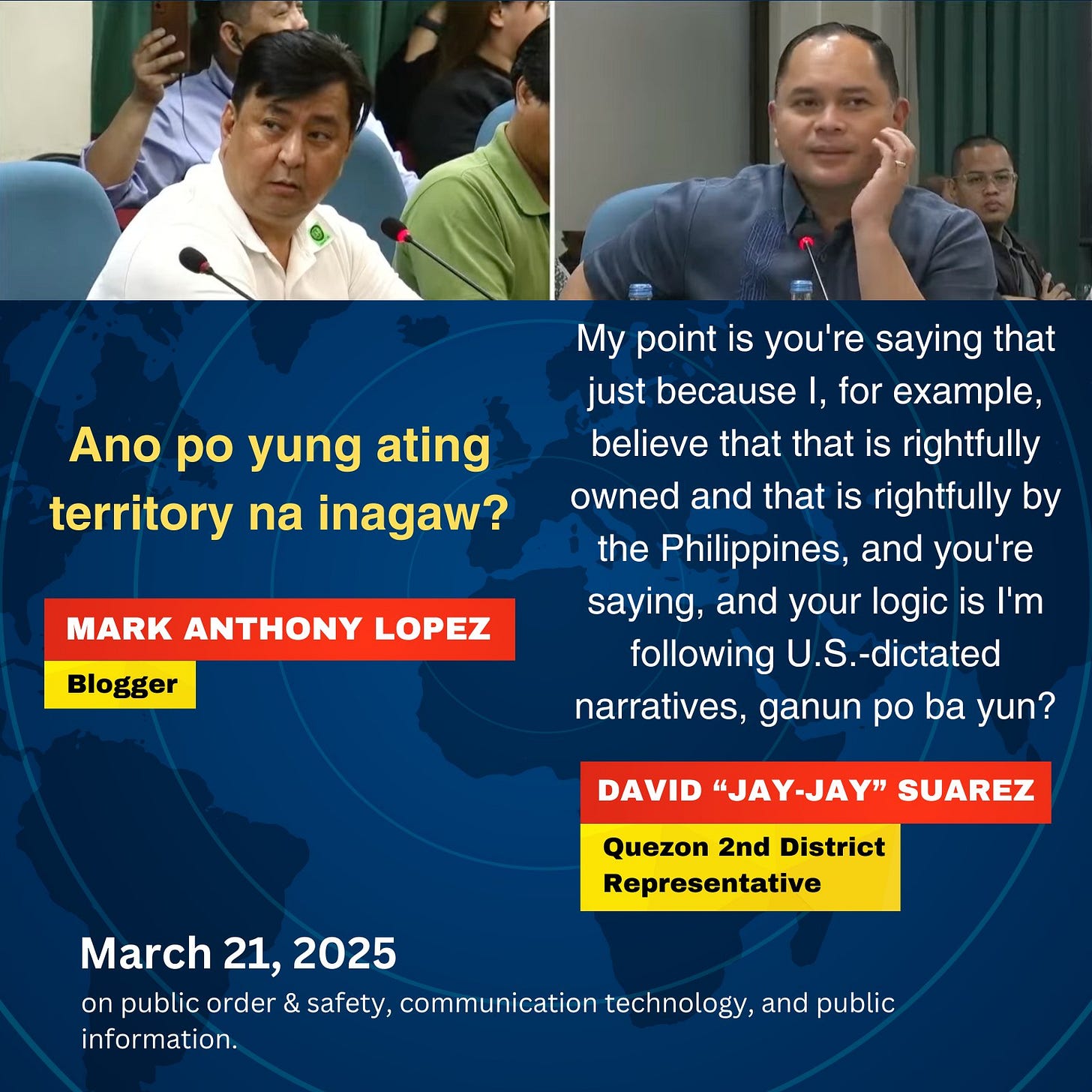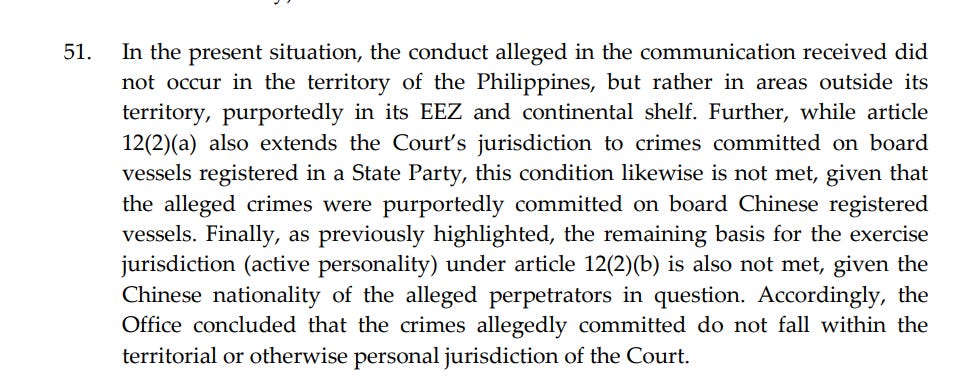The Question that Shattered Illusions
Or how the ICC once lectured Philippine experts about what territory actually means, as if they were first-year law students
Back in 2019, former DFA Secretary Alberto del Rosario, ex-Ombudsman Conchita Carpio-Morales, former Supreme Court Justice Antonio Carpio sent a communication to the International Criminal Court (ICC), armed with a grand accusation: Chinese officials should face charges of “crimes against humanity.” Their case? A litany of grievances in the South China Sea:
- Blocking Filipino fishermen from their ancestral waters at Scarborough Shoal, stripping them of their livelihood.
- Ravaging the Spratly Islands with illegal reclamation and artificial island-building, leaving marine ecosystems in ruins.
- Backing destructive fishing by Chinese nationals, turning a blind eye to environmental carnage.
China isn’t even an ICC member, but here’s the twist: the ICC can claim jurisdiction over non-members if the alleged crimes—under the Rome Statute—happen within a member state’s territory. Carpio, Del Rosario and Carpio-Morales seized on this, arguing that these acts unfolded in the Philippines’ exclusive economic zone (EEZ) and continental shelf—Scarborough Shoal and the Kalayaan Island Group included—back when the Philippines was still an ICC party.
Their big question for the ICC Prosecutor: Does a state’s EEZ count as its “territory” under Article 12(2)(a) of the Rome Statute—and in international law?
Anyone with a shred of international law knowledge could’ve seen the answer coming a mile away. But it seems Carpio, del Rosario and Carpio-Morales were banking on passion, not precedent—hoping Filipino sentiment might rewrite the rules.
Cue the ICC Prosecutor, stepping in like a professor schooling overeager freshmen. Here’s the brutal takedown:
1. Territory 101: The Rome Statute doesn’t define “territory,” but it’s clear—it’s where a state holds *sovereignty*. That’s the land, internal waters, territorial sea, and the airspace above. Full stop. That’s the global standard under international law.
2. EEZ? Not Even Close: Maritime zones like the EEZ and continental shelf? They’re *not* territory. Sovereignty means exclusive, top-to-bottom control. Beyond the territorial sea, coastal states get only “sovereign rights”—limited powers, not the whole deal. The *Island of Palmas* case nailed it: sovereignty is about supreme authority over a patch of the planet. EEZs don’t qualify.
3. Sovereignty vs. Rights: The law of the sea draws a hard line. Sovereignty covers internal waters and the territorial sea—where a state rules supreme. Beyond that? You’re in “international waters,” where coastal states get specific perks under UNCLOS—like resource rights in the EEZ or continental shelf—but nothing close to full control. No amount of wishful thinking changes that.
Oh, and “West Philippine Sea”? Didn’t even get a cameo in the ICC’s lecture.
The result? A masterclass in legal reality, delivered cold on pages 14-16 of the ICC Prosecutor’s report. Del Rosario and Carpio-Morales walked in with a dream; they left with reality check.
Liked what you read? Please FORWARD to your friends via email and/or share in your social media. Also, consider sending a tip to keep this sustainable via Buy Me A Coffee or via GCash (click for QR Code).








Thank you so much. I slowly understand this issue because of you.
Gsto lng nila ng gulo tapos kong may war kanya2 na mag tago. But Ayaw nlng making peace talk para both countries mamuhay nang payapa at Kong ano Pede pagka peraHan jan both countries makinabang. Hays BBM cannot lead his own people and the county he is incompetent DAKONG MAHAY jud.